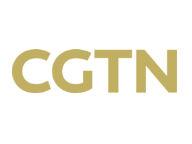Faculty News
—
Professor Aswath Damodaran shares his outlook on Snap's business strategy
—

Excerpt from Financial Times -- "'Facebook has taken so much oxygen that everyone else is having trouble breathing,' says Aswath Damodaran, finance professor at New York University. 'Snapchat is still attuned to a certain young demographic — it was the first video social media company. But it now needs to . . . find its niche and survive.'"
Faculty News
—

Excerpt from Financial Times -- "'Facebook has taken so much oxygen that everyone else is having trouble breathing,' says Aswath Damodaran, finance professor at New York University. 'Snapchat is still attuned to a certain young demographic — it was the first video social media company. But it now needs to . . . find its niche and survive.'"
























